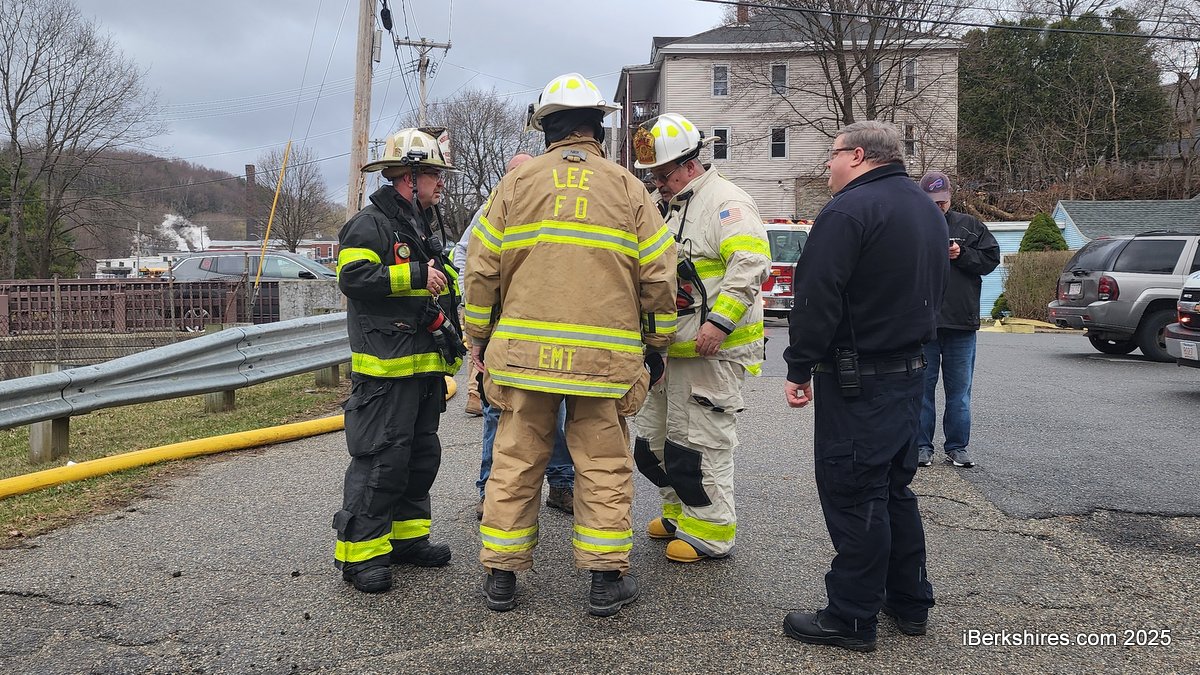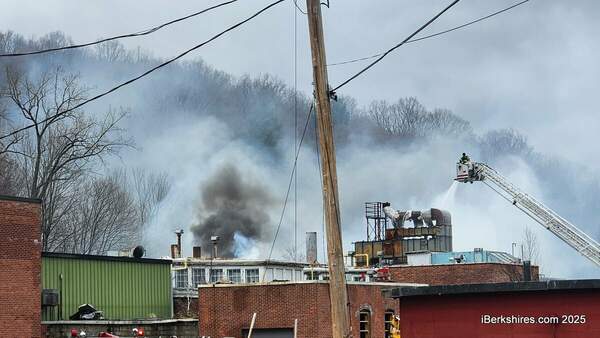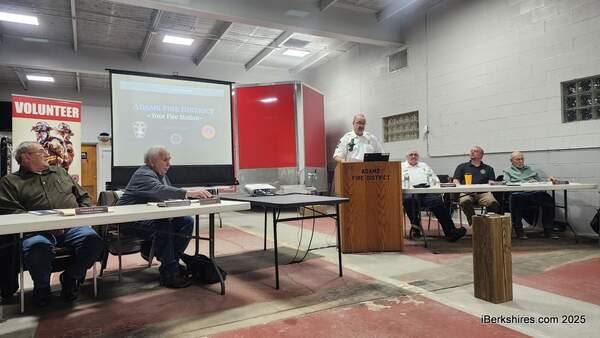
Adams Hires Police Officer Through Federal Grant
 Officers Thomas Cook, left, and Matthew C. Wright were introduced by Chief Donald Poirot. |
Police Chief Donald Poirot introduced Officer Matthew C. Wright, a reserve and temporary officer for three years who joins the force effective full time on Thursday, subject to completing 21 weeks training at the state Police Academy.
Wright will be joined at this academy session with Officer Thomas Cook, who was laid off last year and rehired in the fall. Cook was also at the meeting.
"I thought it was good to put a name to the face," Poirot told the Selectmen. "They work odd shifts, odd hours and don't often have a chance to meet you gentleman."
The chief said Wright's position and training is being funded through a $50,000 federal stimulus grant awarded last fall through the Executive Office of Public Safety and Security.
The hiring of Wright brings the force back up to nearly full strength after cuts last year chopped $180,000 out of the police budget. There was one layoff, a resignation and a retirement since.
"So I'm replacing three with two," said Poirot. "Having the the academy training paid for is a huge help; $50,000 is a lot of money for us."
Town Administrator Jonathan Butler whole-heartedly recommended Wright, describing him "a potentially strong employee."
Poirot said both officers would be assets to the town: "I'm hoping for them to serve the community for years to come."
Greylock Glen
The town has set a tentative date of March 18 to meet with the Greylock Glen Advisory Committee, dependent on obtaining the project's Massachusetts Environmental Policy Act application for review.
The draft document is currently being reviewed by state agencies involved in the project, said Butler. "Many of the organizations that tend to be opposed have been at the table with us throughout this entire process."
When the meeting occurs, a request for proposals for the development of a Greylock Glen Web site will also be discussed. Butler said the site will be used to keep people apprised of the progress of the project and as use as a marketing platform.
Ouellette asked for a comprehensive time line for the board; Butler responded that the town had an internal document laying out steps over the next 15 months that could be used for that purpose.
Chairman Donald Sommer brought up the issue of charging $5 to $10 for use of the transfer station. "We didn't want to discourage recycling; we thought $5 would be fair."
 Ouellette suggested $10 would be better and that the money raised could be used to help restore funding for summer youth programs cut last summer. Selectman Jason Hnatonko said he was thinking the same thing.
Ouellette suggested $10 would be better and that the money raised could be used to help restore funding for summer youth programs cut last summer. Selectman Jason Hnatonko said he was thinking the same thing.But Selectman Joseph R. Dean Jr. said instituting a fee would mean having at least another person at the recycling station. Only one person is there now to check stickers but there's not as much an imperative because the stickers are free to Adams residents.
He suggested the town discuss the issue with the Northern Berkshire Solid Waste District that runs the operation; Butler said he would look into it.
The board also debated whether to codify the clearing of the town's bars by 2 a.m. Butler said the current policy had worked well for 25 years; Poirot agreed. It was a matter of formalizing as a board policy. The issue was scheduled to be discussed at the first meeting in April to give local tavern owners a chance to address it.
In other business:
• The board, acting as the licensing commission, approved an entertainment license for The Grille on Summer Street and a one-day beer and wine license for Berkshire Arts and Technology Charter Public School for a fundraiser.
• The board appointed Thomas Zepka, David Morin and John Trimarchi to the Tree Commission, with the tree warden as an adviser.
• The town has received a $50,000 grant through the Green Communities Act toward the development of a photovoltaic system at the waste-water treatment plan.
• Sommer read a statement on behalf of the board strongly encouraging residents to fill out their Census forms promptly, stressing how important the national count is to the area's congressional representation and federal funding.
















